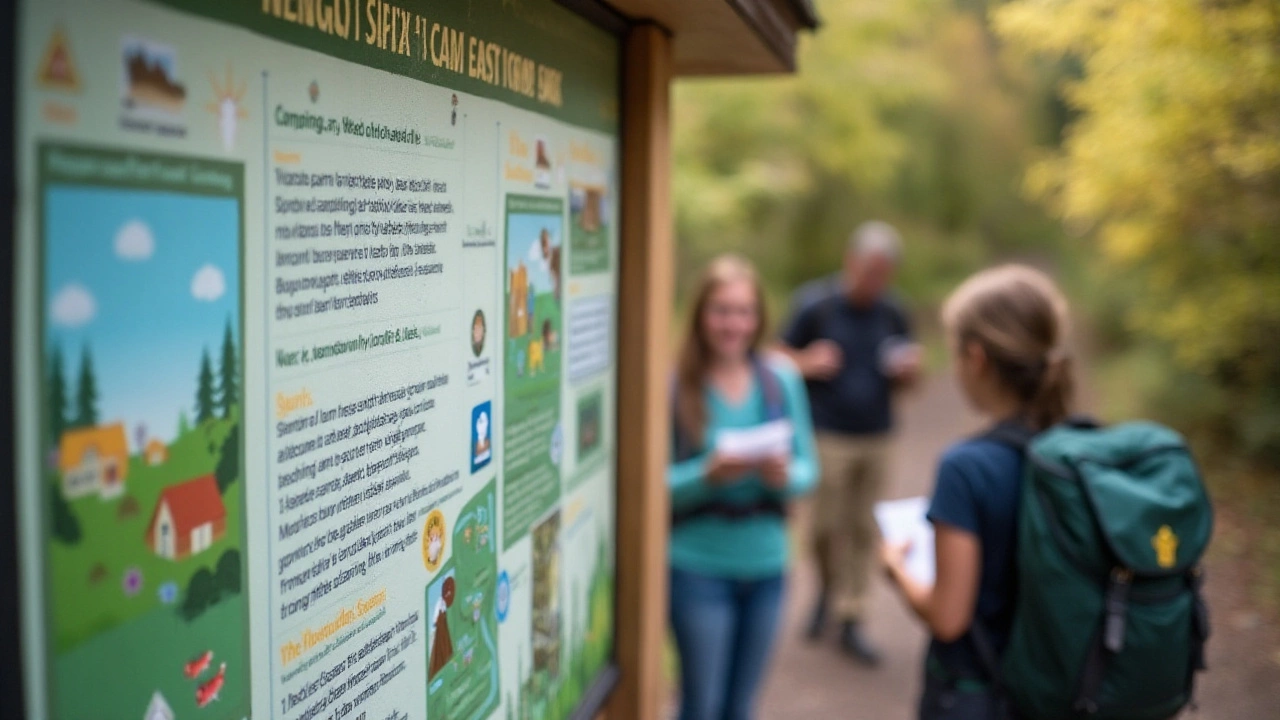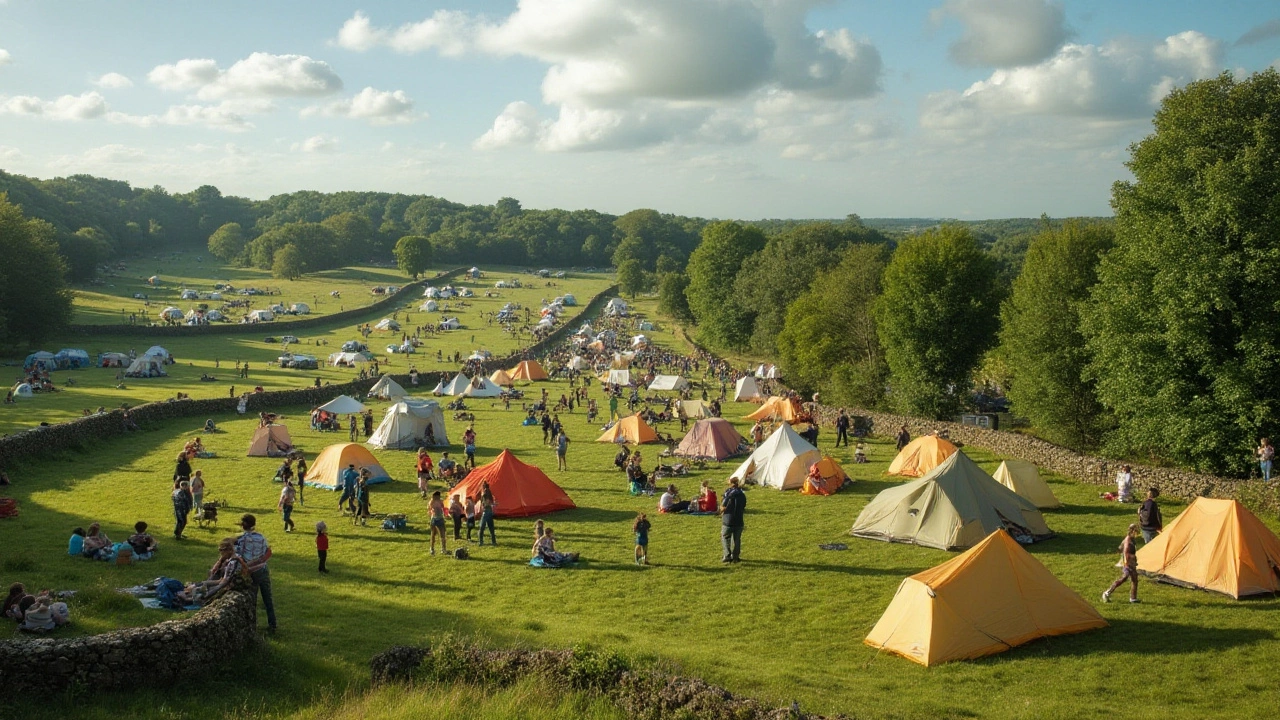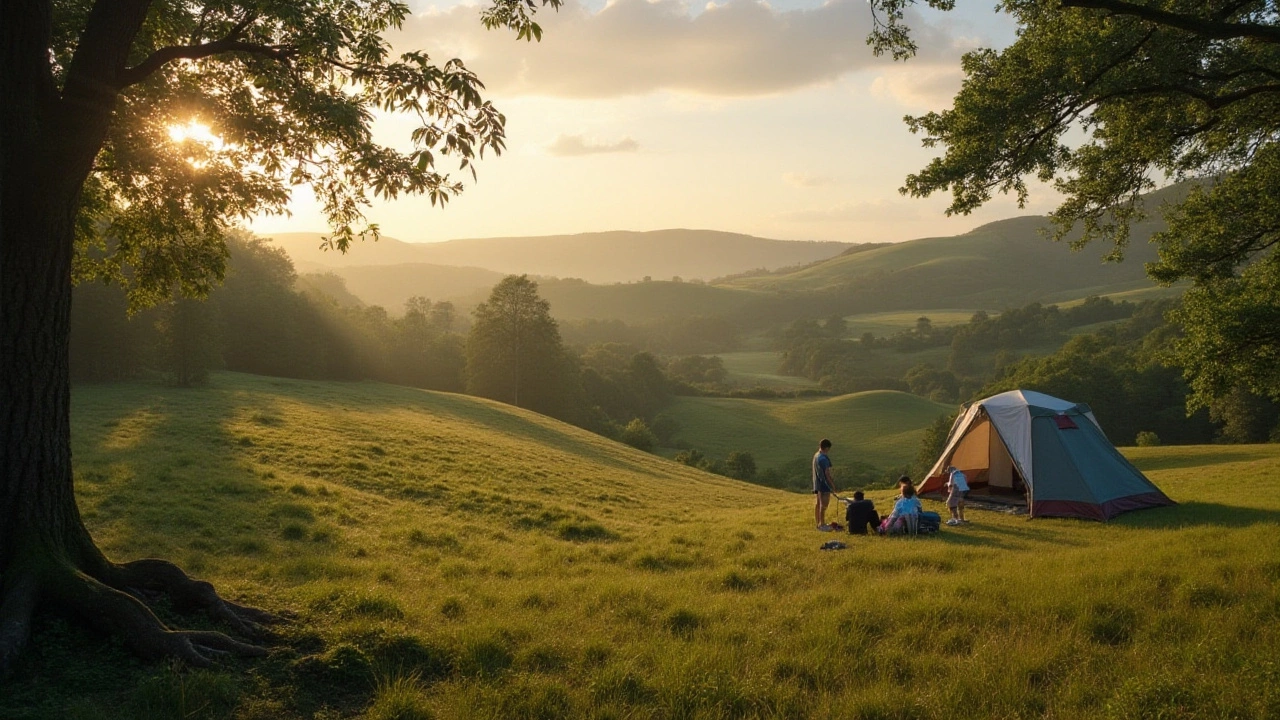Camping in England presents a unique challenge due to its complicated array of laws and regulations. Unlike in some other countries, where wilderness camping is widely accepted, England has strict rules that often puzzle both newcomers and seasoned outdoor enthusiasts alike.
The primary culprit for these restrictions is land ownership. Much of England's picturesque countryside is privately owned, and the laws are crafted to respect these boundaries. This dense patchwork of private and protected lands makes wild camping illegal without express permission from the landowner. But don't hang up your tent just yet; understanding the legal landscape can open up opportunities for those determined to experience the splendor of England's natural beauty.
- The Legal Landscape
- Reasons Behind the Restrictions
- Where You Can Camp Legally
- Getting Permission to Wild Camp
- Tips for a Legal and Enjoyable Camping Experience
The Legal Landscape
When you dream of camping under a starry sky in England, the vision might be dampened by the intricate web of legal restrictions. The rules surrounding camping legality in England are primarily shaped by land ownership. The majority of the land in England is privately owned, and the right to roam freely is not as common as it is in countries like Scotland. This means that without explicit permission, one cannot simply pitch a tent where they please. This has led to many curious visitors, and even locals, quietly questioning, "Why such stringent measures in such a beautiful country?" The answer often lies in a deep respect for the historical and environmental value of the land, which has to be legally safeguarded.
Interestingly, one of the avenues open for camping is on managed UK campsites. These designated areas provide safe and environmentally conscious ways to experience England's breathtaking outdoors. However, they don't always offer the wilderness experience some campers seek. Unlike its neighbor Scotland, where wild camping is mostly allowed under certain conditions, England requires campers to think a bit more creatively if they wish to camp outside of official sites. This is where the concept of "wild camping" enters the conversation, where one might stumble upon legal loopholes or areas where informal permission could be obtained. But for those determined to stick by the book, understanding the complicated layers of wild camping laws becomes essential for planning an adventure.
According to the National Parks website, camping legally on private land usually requires explicit permission from the landowner. They suggest, "Always seek permission from landowners before pitching your tent. It preserves the natural beauty and ensures compliance with laws."
England's tightly-knit communities and historical sites necessitate these regulations, primarily focusing on minimizing human impact on untouched natural areas. The goal is to preserve these regions for generations to come, ensuring local flora and fauna flourish with minimal human interference. For instance, Dartmoor National Park is one of the few exceptions where wild camping is permitted, but even there, it's regulated to ensure sustainable use of the landscape. This area beautifully illustrates how England balances human recreation with conservation.
However, it's not just a story of restriction. There are regions where legal wild camping is possible under specific conditions. National Parks and Commonwealth land sometimes provide specific zones where this activity is legal, though rules can vary. This structured yet fascinatin approach provides a unique charm to England's camping options, making the legality and the environment both a curious labyrinth and a vivid canvas.
Reasons Behind the Restrictions
The unwelcome news for many nature lovers is that wild camping in England faces several restrictions, which stem largely from the nuances of land ownership and environmental conservation. To begin with, England's landscape is a tapestry woven with private properties and areas of historical significance, leading to strict camping legality rules. Unlike in countries like Scotland, where the 'right to roam' offers broader freedoms, the English legal framework remains more constrained.
Much of the countryside and scenic vistas that enthusiasts may wish to camp on are privately owned, and landowners naturally seek to protect their property from potential harm or disturbance. Ensuring their land isn't overrun by campers who may leave litter or inadvertently damage delicate ecosystems becomes a priority. This is compounded by the country's densely populated nature, where the balance between public enjoyment and private rights has long stood on a careful fulcrum.
Environmental concerns also play an essential role in shaping these regulations. Preserving the natural beauty of England's landscape, from its rolling hills to the lush forests, is crucial. The presence of litter, the risk of fire, and disturbance to wildlife are tangible threats posed by unchecked camping. The pursuit of protecting flora and fauna leads environmental groups and authorities to support strict guidelines, a stance that might initially seem stern but is based on long-term conservation goals.
Adding to this, some areas are covered by specific bylaws that further restrict activities to maintain public order and safety. For instance, in national parks or Areas of Outstanding Natural Beauty (AONB), special rules guard against any potential disruption to other visitors and minimize the human footprint on pristine lands. This sentiment is echoed by Natural England, which underscores that respecting these guidelines ensures the wilderness remains unspoiled for future generations.
As noted by a spokesperson from the Countryside and Rights of Way Act 2000, "Respecting the land not only preserves its heritage but underlines our duty to pass natural beauty onto heirs."
It's worth noting that while these camping legality regulations might feel restrictive, they provide a framework that encourages would-be campers to engage with the environment responsibly. By understanding and respecting these limitations, campers are encouraged to seek designated campsites or to seek permission when camping on private land. Thus, the restrictions prompt a more engaged and aware interaction with the natural world, enriching the camping experience rather than detracting from it.

Where You Can Camp Legally
In England, while wild camping laws might seem restrictive, there are still numerous avenues to explore for an adventurous overnight under the stars. The Lake District and Dartmoor National Park stand as rare exceptions where wild camping is permitted under certain conditions. On Dartmoor, campers can enjoy the sweeping landscapes for short-term stays, provided they pitch their tents away from roads and settlements as part of local by-laws which allow for responsible camping on common land.
Official campsites scattered across the UK offer another avenue for avid campers. These sites are abundant in national parks like the Peak District and Yorkshire Dales, where mesmerizing vistas are coupled with essential amenities. The vibrant hues of the heather in the North York Moors during late summer offer a stunningly picturesque backdrop for setting up camp. Here, an intricate network of established sites offers not just safety and convenience but also a chance to meet fellow camping enthusiasts.
Beyond national parks, England boasts a wealth of private campsites. These sites often come with the added comforts of shower facilities, shops, and even Wi-Fi, which might not always be the case in more rugged locations like the Scottish Highlands. The National Trust, owning over 600,000 acres of land, operates campsites, providing another viable option. These adventures support conservation efforts, with proceeds helping maintain the very trails and landscapes enjoyed by so many. One camper noted,
"Staying at a National Trust campsite felt like giving back to the beautiful countryside I was so fortunate to enjoy."
For those wondering if there's any freedom to be had outside these sanctioned areas, the answer lies partly in securing permission from landowners. A friendly approach, coupled with an agreement to leave no trace, can sometimes open up opportunities for a more solitary camping experience. Always check local bylaws to ensure compliance and plan your trip with due diligence.
An intriguing alternative is the advent of camping pods and glamping sites. Embracing the comfort of a sturdy roof without compromising the sense of escape, glamping has taken root from Cornwall to Northumberland. Wooden pods, yurts, and even treehouses offer luxurious retreats tucked within England’s serene retreats. This evolving trend provides not only shelter from unpredictable weather but enriches the experience, blending nature with comfort.
Getting Permission to Wild Camp
In the sprawling and diverse landscapes of England, wild camping is often an alluring prospect for outdoor enthusiasts craving an adventure away from bookable campsites. However, due to the predominant private ownership of lands, permission is a crucial element in making this dream a reality. It's not only a legal requirement but a practice rooted in respect for landowners and conservation efforts. The process of obtaining this permission can, at first glance, feel complex, yet it can often be navigated with relative ease if approached strategically.
First and foremost, identifying who owns the land is paramount. This can be achieved by engaging with local councils or utilizing online resources that provide details about land tenure. Once you know who the owner is, the next step is to reach out and make your case. Crafting a polite and concise request explaining your intentions, the steps you'll take to minimize impact, and your commitment to Leave No Trace principles can increase the likelihood of a positive response. It’s also an opportunity to highlight any shared interests in environmental preservation or outdoor activities, potentially forging a connection beyond mere permission.
It is essential to be flexible with the location and timing of your excursion. Some landowners might be more open during off-peak seasons when the impact on their operations is minimal. Respect any rules or guidance they provide, such as specific areas where pitching a tent is allowed or preferred routes to take. Keep in mind that certain areas, like those within National Parks, may have specific rules, and it is worthwhile to consult with the park authorities for guidelines on wild camping. Authorities in certain National Parks sometimes grant permission under special conditions, particularly in areas where designated spots for such activities exist. While these are not legally binding permissions, having the blessing from governing bodies adds a layer of reassurance and legitimacy to your adventure.
A practical tip is to follow up cautiously if no response is received initially. Sometimes, a gentle reminder can nudge a busy landowner into action. Be sure to express gratitude, regardless of the result, as this can pave the way for future endeavors. Respect is the currency in these negotiations, and cultivating a reputation as a responsible camper can benefit not just your current plans but the broader community of wild campers seeking respect and trust from landowners. According to a report from the Wild Camping Club, "securing permission not only opens paths for current adventures but nurtures relationships that sustain the future of wild camping."

Tips for a Legal and Enjoyable Camping Experience
Embarking on a camping trip in England can be a rewarding adventure, but it requires careful planning to align with the country's legal restrictions. To begin your journey, it is vital to research and understand the designated camping areas within public lands. National parks and certain coastal spots often offer spaces where you can set up camp without violating laws. With the right permits, you can broaden your camping possibilities by accessing private lands that generously welcome campers seeking unique landscapes.
One key factor to ensure your camping trip remains enjoyable and lawful is to always obtain explicit permission before venturing onto private property. As a potential camper, you must respect these boundaries by contacting landowners ahead of your arrival. A polite request can often open doors to private treasures. Another golden rule to remember is the 'leave no trace' principle, which is crucial in preserving the environment and maintaining good relations with landowners. Pack out everything you bring in, including waste, to preserve the natural beauty for future visitors and wildlife.
Many campers find it beneficial to join local outdoor groups or online forums, where they can exchange valuable insights and tips on camping in the UK. Here, you may even stumble across stories and surveyed reviews that guide you toward the best, yet less-known, camping spots. Weather considerations are not to be neglected. England's weather is famously unpredictable, so packing for all seasons is wise. This means bringing appropriate clothing and gear to ensure safety and comfort throughout your stay.
Another tip for enhancing your camping experience is to partake in local community events. By doing so, not only do you get to mingle with fellow campers and locals, but you also gain firsthand insights into the culture and traditions of the areas you visit. Engaging with locals often provides invaluable tips you wouldn't discover otherwise. There is a splendid blend of activities available, from tranquil walks and wildlife watching to more thrilling pursuits like hiking and rock climbing. These activities cater to a wide range of interests, ensuring that everyone finds something appealing. Remember, a successful camping trip is as much about the journey as it is about the destination.
As the respected outdoor enthusiast Ray Mears once said, "Camping connects us deeply with nature, offering a serene escape from the chaos of city life." This sentiment encapsulates the spirit of why following these tips can transform your camping adventure into a meaningful experience.
To assist with your planning, below is a basic breakdown of camping options and permissions in England:
| Location | Permissions Required | Known Campsites |
|---|---|---|
| National Parks | None for designated areas | Exmoor, Dartmoor |
| Private Land | Yes, from owner | Varies by region |
| Coastal Regions | Dependent on local regulations | Cornwall, Northumberland |
Follow these well-rounded strategies and you're sure to have an enriching and law-abiding camping trip in the picturesque English landscape. These efforts not only ensure your own satisfaction but also the protection and ongoing availability of these beautiful spaces for all to enjoy.
